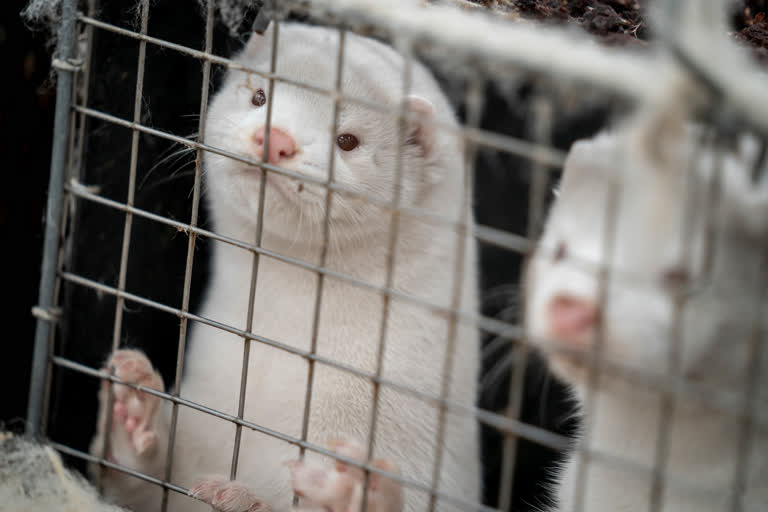London: An analysis of outbreaks of the novel coronavirus on 16 mink farms in the Netherlands has revealed that the COVID-19 virus is capable of transmission between humans to minks, as well as from these mammals to people.
While the virus was initially introduced from humans to the minks, the researchers, including Bas B. Oude Munnink from the Erasmus University Medical Center in the Netherlands, said it has since evolved.
"More research in minks and other mustelid species is important to understand if these species are at risk of becoming a reservoir of SARS-CoV-2," they wrote in the study, published in the journal Science.
According to the scientists, the virus was first diagnosed on two mink farms in late April of 2020 in the Netherlands.
In response, they said an extensive surveillance system was set up.
Read:| Early to judge if COVID-19 mutation in minks can impact vaccine: WHO Chief Scientist
The researchers performed an in-depth investigation among the first 16 infected mink farms in the Netherlands using a combination of coronavirus diagnostics, whole-genome sequencing, and in-depth interviews with farmworkers.
By the end of June, they found that 66 of 97 of the mink farm residents, employees and/or contacts tested had evidence for SARS-CoV-2 infection.
According to the study, the mink virus genome analysis revealed a diversity of sequences.
These large clusters of infection were initiated by COVID-19 cases with viruses that bear the "D614G mutation", which has come to dominate human infections in several parts of the world, the scientists said.
They also found that some people were infected with strains of the virus with an animal sequence signature, providing evidence of animal to human transmission.
However, they did not find any evidence of spillover to people living in close proximity to mink farms.
"It is imperative that fur production and the trading sector should not become a reservoir for future spillover of SARS-CoV-2 to humans," the scientists wrote in the study.
PTI
Read:| UK bans non-resident arrivals from Denmark over mink fears



